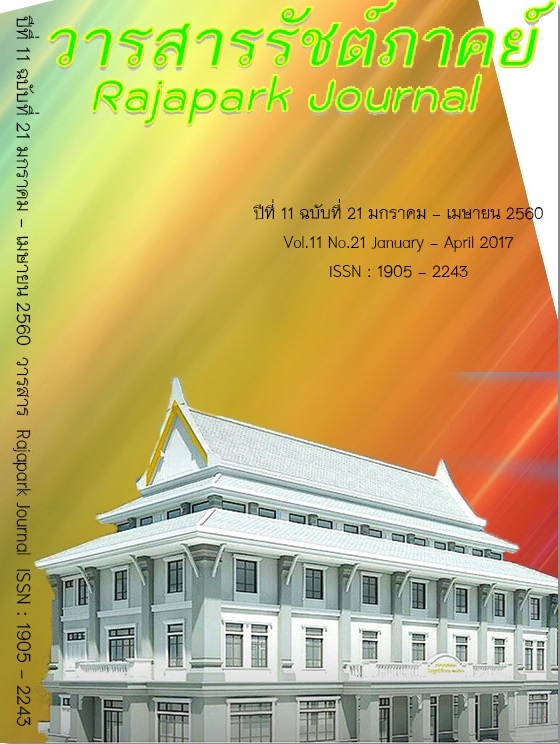Political Confidence of the People in Lopburi Province to The Government of National Council for Peace and Order (NCPO)
Main Article Content
Abstract
This research aims to (1) the level of political confidence of the people in Lopburi province to the Government of National Council for Peace and Order (NCPO) (2) to compare the political confidence of the people in Lopburi province to the Government of National Council for Peace and Order (NCPO) according to personal characteristics. The sample population in this study consisted of 400 people in Lopburi provinces. The research instrument was a questionnaire. The statistical procedures employed in the analysis of the data collected included frequency, percentage, mean, standard deviation, the t test (independent t test) and the F test (independent sample F test) The findings were as follows. (1) Overall, people in Lopburi Province reported considerable confidence toward the Government of National Council for Peace and Order (NCPO), and in each respect of areas, the results showed that people in Lopburi Province were of the considerable confidence toward the Government of the National Council for Peace and Order (NCPO) in four following areas; (1) protection and praising the monarchy, (2) maintaining resources security and creating a balance between conservation and sustainable utilization, (3) securing the state and foreign affairs, and (4) reducing the social inequality and building an opportunity to access state services, respectively whereas other areas were reported of the moderate confidence toward the Government of National Council for Peace and Order (NCPO). (2) People in Lopburi Province at different age, different marital status and different occupation reported the different confidence toward the Government of the National Council for Peace and Order (NCPO) whereas no difference in Lopburi people’s confidence toward the Government of the National Council for Peace and Order (NCPO) was found on such factors as gender, education, religion, and the average monthly earning
Article Details
Views and opinions appearing in the Journal it is the responsibility of the author of the article, and does not constitute the view and responsibility of the editorial team.


